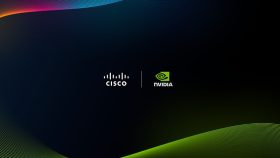Itential Launches Automation Studio

Automation of multi-domain networks is heating up. Emerging technologies such as 5G, which require large amounts of scale and virtualization, are only going to put more emphasis on this.
How will this all roll out? Automation vendor Itential thinks that network operators shouldn't have to learn code and developers shouldn't have to waste time bringing traditional equipment under cloud control. To this end, the vendor announced a new package called Automation Studio at the Cisco Live customer/partner conference in Barcelona this week.
The product, which runs in customer data centers, adds low-code methods such as graphical interfaces and automated forms to consolidate the management of multi-domain networks.
Automation Studio is the latest addition to Itential's Network Automation Platform, which merges the command-line interfaces (CLIs) of older switches, routers, firewalls, and servers with more modern cloud-based management consoles in federated APIs and easy-to-deploy management tools.
The Multi-Domain Issue
Automation Studio, like Itential's other products, aims to address what many enterprises are requesting these days. According to recent research, about one-third of many U.S. companies’ workloads are running in on-premises data centers; another one-third on public clouds; and the remainder on a mix of private and hybrid clouds. Unifying control of the underlying network elements, both virtual and physical, remains a challenge.
But gaining this control has become a priority, as companies seek better security, performance, and efficiency in provisioning and maintaining IT resources.
With Automation Studio, Itential aims to make multi-domain network automation even simpler. The vendor has added graphical drag-and-drop elements and mechanisms for automatically creating forms based on data modeling languages such as YAML, YANG, and TOSCA. These forms are then used to govern a range of older element management systems as well as the virtual functions of cloud-based orchestrators.
The package also features pre-built automation routines and templates that reflect network management best practices. And developers can use open APIs to automate workflows.
Partnership with Netrounds
Itential also announced a collaboration with Netrounds to demonstrate “zero touch provisioning and testing” in multi-cloud networks. One goal of the partnership is to help network operators ensure performance stays at desired levels when older data centers are joined to software-defined wide-area networks (SD-WANs).
Netrounds offers agents that run in virtual machines or containers, monitoring network performance, including VPNs and SD-WAN elements. The results can be coupled with Itential's automation to keep network performance optimal.
In 2019, Netrounds joined the long list of partners for Japan’s Rakuten Mobile, which until recently seemed on track to become the world’s first cloud-native, entirely virtualized mobile network. After a few embarrassing stalls, the latest news is Rakuten will go commercial in April.
Perhaps Itential will join the Rakuten effort. That could be useful: Itential, headquartered in Atlanta, Georgia, and Bracknell, U.K., is still small (150 employees) and still small in funding (about $5.5 million to date). Still, it’s big on ambition, and management has been smart to partner with threatening potential competitors, including Cisco and Red Hat, as well as with some other Goliaths, such as Tech Mahindra.
There’s still competition from those quarters, as well as from other startups, such as Apstra. But Itential is well placed to garner at least some share of this important market segment. And who knows? If all goes well, being small but effective just might make Itential an attractive acquisition target someday.





















